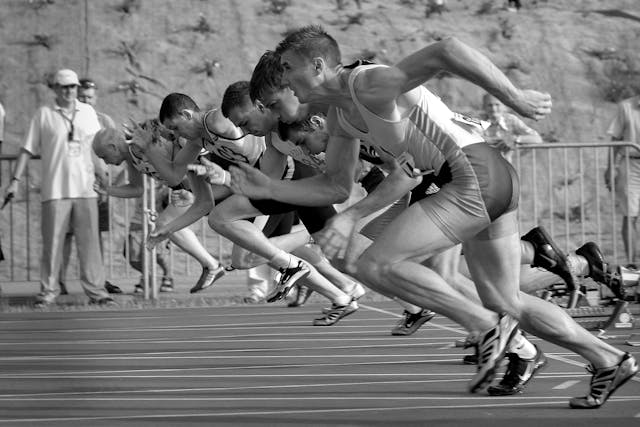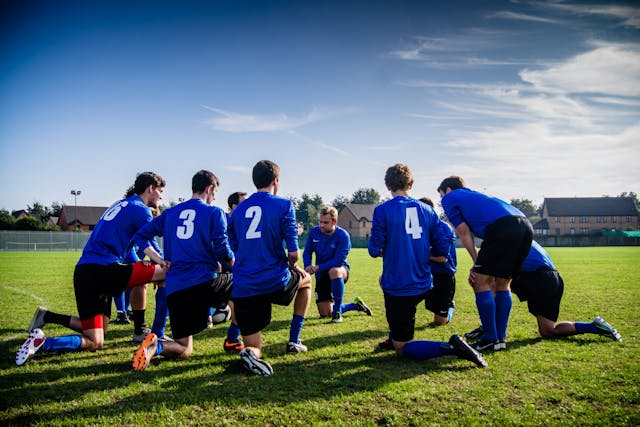Sports Retirement: Transitioning from Athlete to Life After the Game
For professional athletes, retiring from sports is more than just stepping away from the field, court, or track—it’s a significant life transition. The end of an athletic career often comes with mixed emotions, ranging from pride in achievements to uncertainty about what comes next. Successfully navigating this change requires planning, self-reflection, and a willingness to adapt to a new identity beyond the game.

The Emotional Impact of Retirement
Retirement marks the end of a long journey, but it can also bring emotional challenges.
Common Emotional Responses
-
Loss of Identity: Many athletes tie their sense of self to their sport, making it hard to envision life without it.
-
Grief and Sadness: Letting go of the routine, camaraderie, and adrenaline of competition can feel like a personal loss.
-
Relief and Excitement: For some, retirement offers a chance to rest, heal, and pursue new passions.
Recognizing these emotions is a vital first step in moving forward. Seeking support from family, friends, or mental health professionals can help athletes process these feelings.
Financial Planning for Life After Sports
Athletic careers can be lucrative but short-lived, making financial planning critical for a smooth transition.
Key Strategies
-
Save Early: Athletes should prioritize savings and investments during their playing years.
-
Budget Adjustments: Post-retirement, income may decrease significantly, requiring a reassessment of expenses.
-
Consult Professionals: Financial advisors can help athletes plan for long-term stability and avoid common pitfalls like overspending.
Understanding the financial landscape ensures a secure foundation for the next chapter.
Finding a New Purpose
Post-sports life is an opportunity to explore new interests and careers.
Exploration and Self-Discovery
-
Further Education: Many athletes return to school to complete degrees or gain new qualifications.
-
Entrepreneurship: Starting a business can be a way to channel competitive energy into something new.
-
Coaching or Mentorship: Sharing knowledge and experiences with younger athletes keeps retired players connected to their sport.
A focus on purpose and growth can turn the uncertainty of retirement into a period of exciting reinvention.
Physical Health After Retirement
Maintaining physical health is essential for former athletes, whose bodies may carry the strain of years of intense training and competition.
Steps for Staying Healthy
-
Adapt Exercise Routines: Transition from high-intensity training to sustainable activities like yoga, swimming, or walking.
-
Prioritize Recovery: Address lingering injuries and prioritize long-term joint and muscle health.
-
Monitor Diet: Caloric needs may decrease after retirement, so adjusting diet accordingly is key.
Focusing on health helps ensure that retirement is not just long but also active and enjoyable.
Building a Support Network
Transitioning from a highly structured environment to a more open-ended lifestyle can feel isolating.
The Role of Community
-
Stay Connected with Teammates: Maintaining friendships with former colleagues can provide emotional support.
-
Join New Groups: Explore hobbies or interests that foster a sense of belonging.
-
Seek Professional Guidance: Career coaches or therapists can offer personalized strategies for navigating change.
Having a reliable network makes the challenges of retirement easier to manage.

Learning to Embrace a New Identity
Retirement is not the end of an athlete’s story—it’s the beginning of a new one.
Reframing Success
-
Celebrate the Past: Reflect on achievements and recognize the skills gained from a sports career.
-
Set New Goals: Personal, professional, or creative goals help provide structure and a sense of accomplishment.
-
Stay Open to Change: Embracing flexibility allows athletes to find fulfillment in unexpected places.
The skills that made athletes successful—discipline, resilience, and determination—are invaluable in any field.
Conclusion: Moving Forward with Confidence
Sports retirement is a significant life transition, but it’s also a chance to redefine success and discover new passions. By addressing emotional, financial, physical, and social aspects of this change, athletes can build a fulfilling life beyond their playing days.
The game may end, but the lessons learned and the qualities developed during an athletic career provide a strong foundation for a new beginning. With the right mindset and support, life after sports can be just as rewarding as life on the field.












